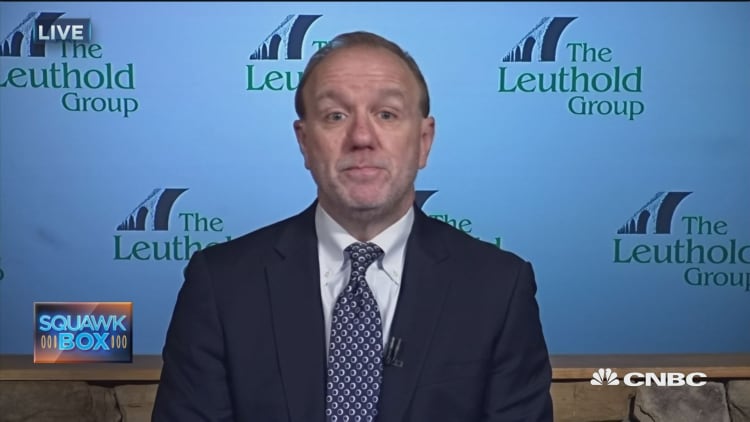
As U.S. stocks continue to grind higher, closely followed strategist Jeff Saut told CNBC on Friday that the current bull market likely has about six to eight years left to run.
"Secular bull markets have three legs. The first leg ended in May of 2015," said Saut, chief investment strategist at Raymond James. "We started the second leg of the bull market in February of 2016. ... The second leg is usually the longest and the strongest driven by earnings."
"I think [we're] very early innings in the second leg," he added in an interview on "Squawk Box." "If you look at the history of secular bull markets, at a minimum this thing's got another six, seven, eight years left in it."
Stocks were mixed Friday, but the major U.S. averages were set to conclude their first positive September since 2013. The Dow is up more than 23 percent over the past 12 months, according to FactSet; the is more than 16 percent higher, while the up more than 22 percent.
Wall Street has its last trading day of the month on Friday, two days after Republicans unveiled their blueprint for a major overhaul of the U.S. tax code, which includes reducing the corporate tax rate from 35 percent to 20 percent.
Also appearing Friday on "Squawk Box" was strategist Jim Paulsen. He said the GOP's tax plan will likely benefit small-cap stocks more than larger ones.
"Not only because small companies have more domestically downsized sales and you know they have a bigger impact, but small companies also typically have narrower profit margins and so any cost reduction is a bigger deal to their operating base," said Paulsen, chief investment strategist at the Leuthold Group.
Paulsen said he believes stocks will go higher until "you put some break in front of it or some hurdle." He said there are not rate pressures at the moment and the dollar is coming down.
"I think inflation is brewing," he said. "It's just, like everything else, underwhelming."


